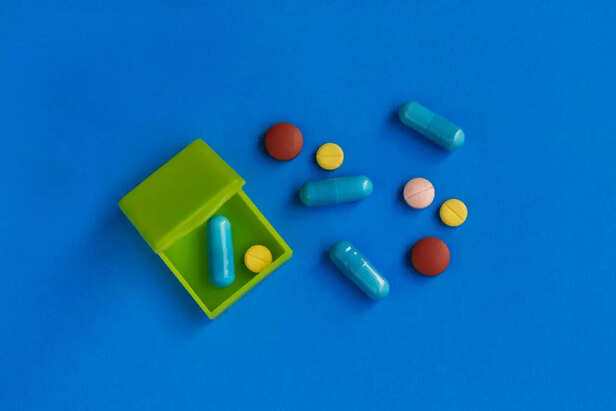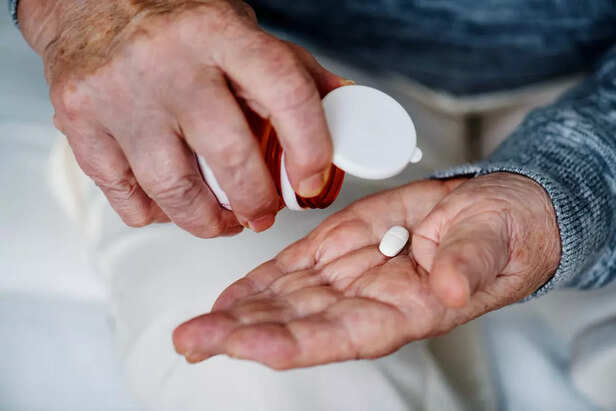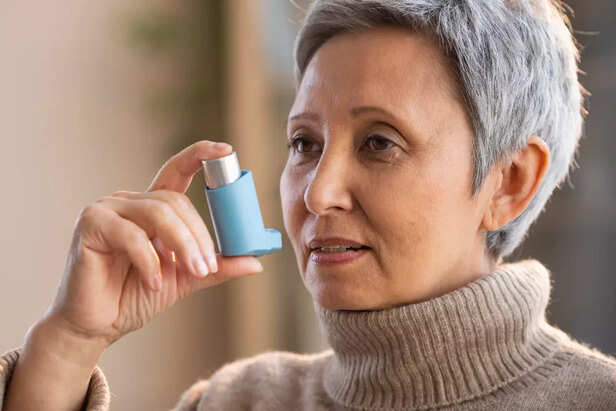Two Medicines at Once Could Put You in Serious Danger, Here’s How
Manika | Aug 26, 2025, 23:30 IST
Medicine
( Image credit : Pixabay )
We don't think twice about getting two different pills on a single day. If one is a blood pressure medication and the other is for a headache, why would they interfere with each other? Here's the catch: drugs don't exist in isolation after being inside the body. They travel through the same channels, consume the same enzymes, and often even compete with each other in ways that can become deadly.
Medicines are designed to heal, but when combined incorrectly, they can do more harm than good. This is what we call drug interactions when one medicine changes the effect of another. Sometimes the result is a reduced benefit, sometimes an intensified effect, and sometimes dangerous side effects you never expected. And it’s not just prescription drugs at play over-the-counter pills, herbal remedies, and even everyday items like grapefruit juice can interfere with prescribed treatments.
![Drug Interaction]()
A drug interaction is when one drug changes the effect another has. In talking with Jeevan Kasara, Director and CEO, Steris Healthcare Pvt. Ltd., he explains that change may dampen its effect, increase it, or cause side effects it wouldn't have otherwise shown. And it's not just prescribed drugs that clash. Pill-version over-the-counter drugs, multivitamins, and herbal remedies can all do the same thing to prescribed treatments.
![Make you feel bad]()
Use blood thinners like warfarin. By themselves, they prevent fatal clots. Use ibuprofen for arthritis, and the danger of bleeding is multiplied tenfold. Or antibiotics plus oral contraceptives now and then; the antibiotics will nullify the pill effect. Even such a ubiquitous mix as cough medicine and an antidepressant will make you lightheaded, drowsy, or both.
All drugs take the same route. They're absorbed, metabolised in the liver, distributed, and finally eliminated. When two drugs rely on the same routes, they compete. They may inhibit each other's critical enzymes, accumulating in the blood. That can amplify side effects. Or a drug may accelerate the metabolism of another, so it's too weakened to have any effect.
Who's most at risk?
![Elderly taking medicine consciously]()
Elderly individuals are most at risk because they usually take several medicines for ongoing diseases such as diabetes, high blood pressure, or arthritis. But no one else is out of danger either. Habits of life—alcohol, too much caffeine, or popular herbal supplements—can all interfere with the effects of medicines. Grapefruit juice, for example, is well known to increase the levels of some drugs for high blood pressure and cholesterol to toxic levels.
Herbal or vitamin supplements are thought by most people to be innocuous. They're actually very unsettling substances. St. John's wort, used for mood by millions, counteracts birth control pills and some antidepressants. Extremely large amounts of vitamin E will suppress blood clotting and cause bleeding risks. Just because it is called natural doesn't necessarily make it a good friend to prescription medications.
Being safe is the key to Bad News
![Consume Consciously]()
The good news is that most drug interactions are avoidable. Always inform your doctor what pills you’re taking, including supplements. Stick to one pharmacy if possible; they’ll keep track of your prescriptions and flag potential problems. Read labels closely for warnings about food or alcohol. And above all, resist the temptation to self-medicate when you’re already on prescribed drugs.
The Fundamental Truth
Drugs are great medicine, but they don't always see eye to eye. Merging two without advice can be worse than good sometimes. The most secure action isn't fear—it's understanding and openness. Ask and reveal the entire tale to your doctor, and don't underestimate the influence of "small" additions like supplements or painkillers.
Because in the end, avoiding a dangerous drug interaction isn't about learning every conceivable collision it's about providing those who are going to care for you with all of the information they need.
Explore the latest trends and tips in Health & Fitness, Spiritual, Travel, Life Hacks, Trending, Fashion & Beauty, and Relationships at Times Life!
What are drug interactions ?

Drug Interaction
( Image credit : Freepik )
A drug interaction is when one drug changes the effect another has. In talking with Jeevan Kasara, Director and CEO, Steris Healthcare Pvt. Ltd., he explains that change may dampen its effect, increase it, or cause side effects it wouldn't have otherwise shown. And it's not just prescribed drugs that clash. Pill-version over-the-counter drugs, multivitamins, and herbal remedies can all do the same thing to prescribed treatments.
Examples you may be surprised to see in daily life

Make you feel bad
( Image credit : Freepik )
Use blood thinners like warfarin. By themselves, they prevent fatal clots. Use ibuprofen for arthritis, and the danger of bleeding is multiplied tenfold. Or antibiotics plus oral contraceptives now and then; the antibiotics will nullify the pill effect. Even such a ubiquitous mix as cough medicine and an antidepressant will make you lightheaded, drowsy, or both.
Why is this a bad news?
Who's most at risk?

Elderly taking medicine consciously
( Image credit : Freepik )
Elderly individuals are most at risk because they usually take several medicines for ongoing diseases such as diabetes, high blood pressure, or arthritis. But no one else is out of danger either. Habits of life—alcohol, too much caffeine, or popular herbal supplements—can all interfere with the effects of medicines. Grapefruit juice, for example, is well known to increase the levels of some drugs for high blood pressure and cholesterol to toxic levels.
And what of "natural" remedies?
Being safe is the key to Bad News

Consume Consciously
( Image credit : Freepik )
The good news is that most drug interactions are avoidable. Always inform your doctor what pills you’re taking, including supplements. Stick to one pharmacy if possible; they’ll keep track of your prescriptions and flag potential problems. Read labels closely for warnings about food or alcohol. And above all, resist the temptation to self-medicate when you’re already on prescribed drugs.
The Fundamental Truth
Because in the end, avoiding a dangerous drug interaction isn't about learning every conceivable collision it's about providing those who are going to care for you with all of the information they need.
Explore the latest trends and tips in Health & Fitness, Spiritual, Travel, Life Hacks, Trending, Fashion & Beauty, and Relationships at Times Life!
